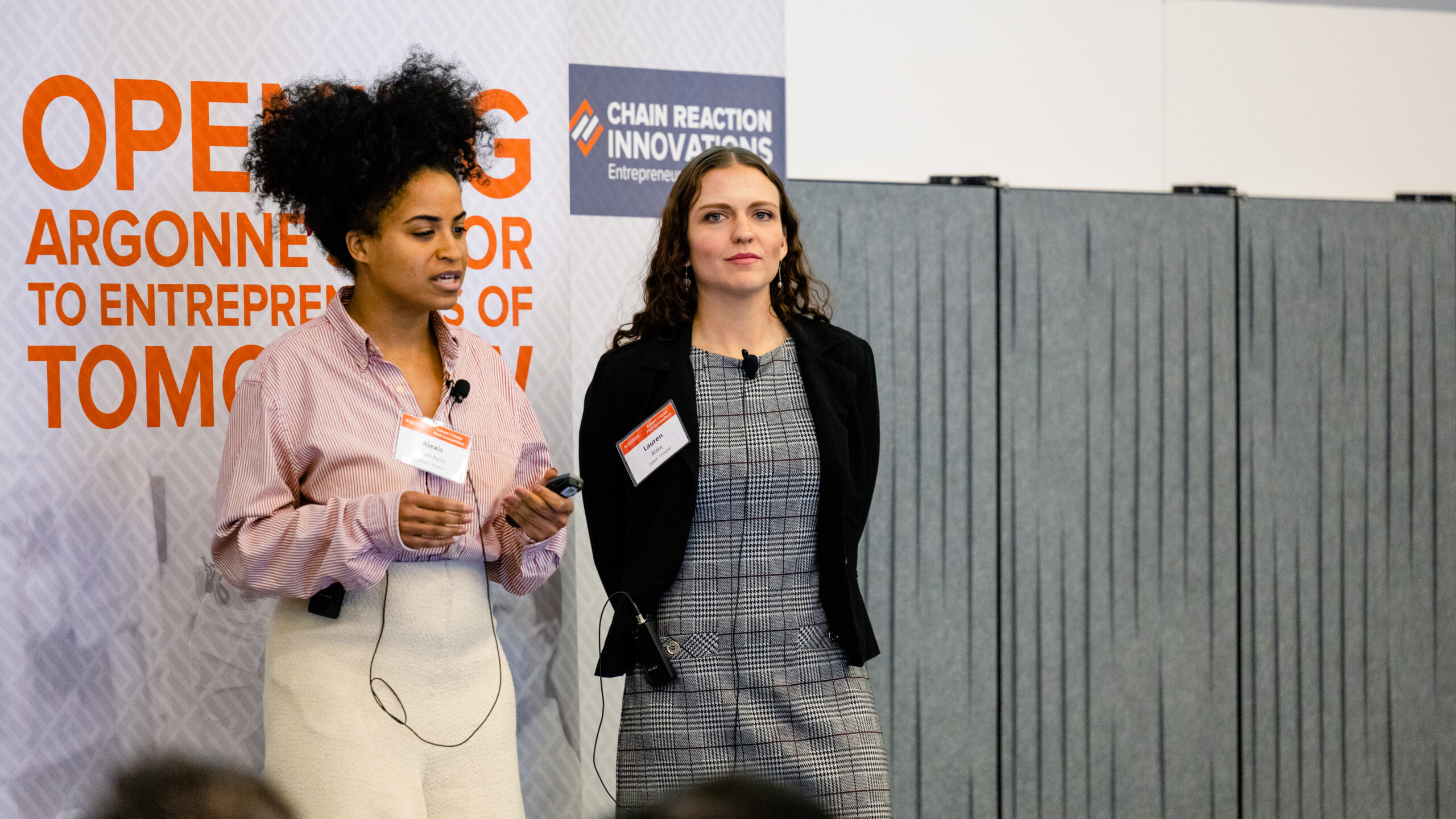
Fast fashion may seem affordable, but its true cost goes beyond the price tags on clothing. The industry’s unsustainable, unethical practices have negatively impacted the environment and its current lack of government regulations has allowed these practices to run rampant around the globe. Despite the dominance of cheap, quick clothing production among modern retailers, Syracuse University biomedical engineering alumna Alexis Peña ’16, and her colleague, Lauren Blake, are determined to revolutionize the textile industry with their start-up, Good Fibes.
“Since summer 2022, Lauren and I have embarked on understanding the fashion industry ecosystem to provide innovative solutions for the current challenges,” says Peña. “At Good Fibes, we’re developing methods for biomanufacturing natural textile fibers using biological building blocks. Our mission is to enable a circular textile economy through material innovation.”
The biotech startup aims to produce lab-grown fibers through cellular agriculture and use engineered molecules to create renewable, biodegradable, and non-toxic fibers. They hope this will offer alternatives to synthetic fibers such as polyester, which currently make up over 50% of clothing material. Synthetic fibers can also take hundreds of years to degrade and shed microplastics and chemical pollutants into the environment.
Though fibers like cotton, silk, or wool are natural fibers, their production processes don’t align with sustainability goals or meet the industry’s needs. Cotton processing demands extensive amounts of water and silk production requires a considerable amount of energy. Wool products may also contain harsh chemicals and dyes that make them less biodegradable.
Natural materials can also be unpredictable in supply due to weather, humidity, animal diet, or plant soil, which can cause variations in harvest seasons and batch-to-batch quality. Additionally, the industry faces challenges related to performance criteria and variability in quality, which ultimately leads to a reliance on synthetic fibers.
Good Fibes’ bioengineered fibers solve these issues by providing environmentally conscious production and better-quality materials compared to current synthetic textiles.
“The lack of reliable alternatives to synthetic fibers is a major pain point in the textile industry. Our bioengineered fibers not only provide an alternative to petroleum-based fibers but also address limitations of cotton, silk, and wool by having year-round production and tunable properties such as elasticity, tensile strength, and dye affinity” says Peña.
Peña and Blake recently completed their Ph. Ds in May 2023 at Johns Hopkins University. The co-founders also taught a course called “Future Fashion Innovation” to material scientists and engineering undergraduates at Hopkins during intersession and adapted the course into a webinar for Johns Hopkins School of Medicine alumni during Earth Week in 2023.

Additionally, Good Fibes has been selected as a participant in a lab-embedded entrepreneurship program (LEEP), Chain Reaction Innovations (CRI) program at Argonne National Laboratory. The CRI program is designed to support entrepreneurs and their innovative research with a focus on clean energy.
“Fashion should allow people to feel good about their clothing but also feel good about what happens to their clothing after they wear it,” says Peña. “We believe this can truly innovate the textile industry and bring a much-needed change to fashion’s monolithic infrastructure.”
